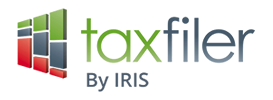P11D filing to end
HMRC is scrapping the use of Form P11D to report benefits in kind from 2026. How will you need to account for tax and NI due after this?

Currently, over 4m P11D returns are filed each year. The forms are used to report taxable benefits in kind, e.g. company cars, and set out the taxable amount for the employee and the Class 1A liability for the employer. It is possible to account for benefits via the payroll system, but in some cases a Form P11D is still required to pay the Class 1A liability. HMRC has announced that from 6 April 2026, it will be mandatory to payroll all benefits in kind, with both tax and Class 1A paid via the payroll system.
There is no further detail at present, e.g. we don’t know whether Class 1A will be payable monthly during the tax year or in one payment by 6 July after the tax year end (as is the case now). Draft legislation will be published later this year.
Related Topics
-
HMRC updates guidance for claiming new allowance
Qualifying expenditure on plant and machinery can qualify for a 40% first-year allowance from 1 January 2026. HMRC has now updated its guidance to help make claims. What do you need to do?
-
Get ready for Making Tax Digital for Income Tax
If you’re one of the (un)lucky individuals who need to join Making Tax Digital for Income Tax (MTD IT) from 6 April 2026, you probably know that this involves submitting regular, digital records to HMRC. But what do you need to do to prepare?
-
CT61









 This website uses both its own and third-party cookies to analyze our services and navigation on our website in order to improve its contents (analytical purposes: measure visits and sources of web traffic). The legal basis is the consent of the user, except in the case of basic cookies, which are essential to navigate this website.
This website uses both its own and third-party cookies to analyze our services and navigation on our website in order to improve its contents (analytical purposes: measure visits and sources of web traffic). The legal basis is the consent of the user, except in the case of basic cookies, which are essential to navigate this website.